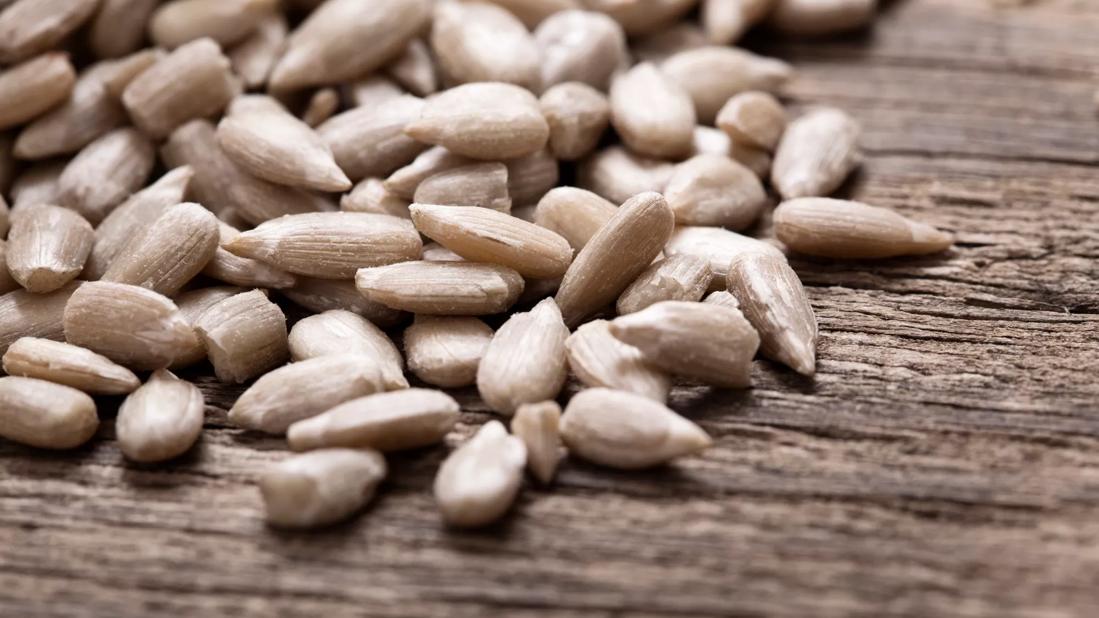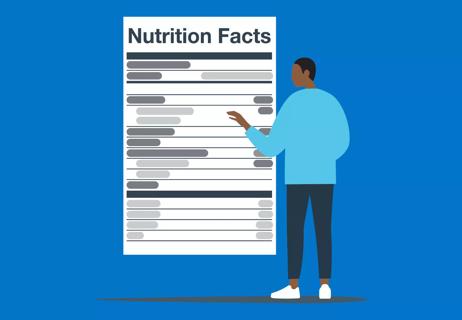Advertisement
These tiny but mighty seeds can help fight cancer and inflammation and support thyroid health

You can buy sunflower seeds hulled or still in the shell. They’re great both ways, but we think the satisfying crack of the shell somehow makes the nutty seed inside taste even better.
Advertisement
Cleveland Clinic is a non-profit academic medical center. Advertising on our site helps support our mission. We do not endorse non-Cleveland Clinic products or services. Policy
Sunflower seeds come from the sunflower (Helianthus annuus). Most farmed sunflowers go to sunflower oil production, with only certain varieties raised for eating.
“There’s so much nutrition packed into sunflower seeds,” says registered dietitian Gillian Culbertson, RD, LD. “Plus, they’re delicious. I love them as toppers on salads and yogurt, and of course, they’re a classic in trail mix.”
Culbertson shares the amazing health benefits of the sunflower seed.
Most seeds and nuts are loaded with nutrients, but sunflower seeds are especially impressive. “They have even higher amounts of some vitamins, minerals and healthy fats than other seeds,” says Culbertson.
“They are one of the most nutritious foods you can eat. And some of their benefits, like supporting healthy thyroid function, are somewhat unique.”
Sunflower seeds are an excellent source of antioxidants like vitamin E, healthy fats, B vitamins, and copper and other minerals. They contain nutrients that fight cancer, lower your risk of heart disease, balance blood sugar, support thyroid health and lower inflammation.
Here are the top five benefits of eating sunflower seeds.
You can help prevent many cancers through healthy lifestyle choices. Eating nutrient-dense foods is one of the most important steps you can take to lower your cancer risk.
Sunflower seeds are a rich source of antioxidants such as vitamin E and flavonoids. “Antioxidants prevent free radical damage that can lead to cancerous changes in your cells,” notes Culbertson.
Advertisement
The powerhouse seeds are also packed with beneficial polyunsaturated fatty acids. Studies identify conjugated linoleic acid (CLA) as an anti-cancer fatty acid. You can get CLA in many foods. But sunflower seeds have the highest CLA content compared with most other seeds, such as sesame, flax and peanut.
Studies show that getting plenty of vitamin E through your food (rather than supplements) protects against cancer. “Sunflower seeds are one of the best sources of vitamin E,” says Culbertson. “In 1 cup (about 45 grams) of in-the-shell seeds, you get more than 100% of your daily vitamin E requirement.” (But make sure you crack open the shell and eat only the seed — the shell isn’t edible.)
The vitamin E in sunflower seeds isn’t just a cancer fighter. It also helps reduce inflammation, a risk factor for heart disease. In addition, studies show it lowers LDL (“bad”) cholesterol, total cholesterol and triglycerides.
“Sunflower seeds contain compounds called phytosterols,” shares Culbertson. “They prevent your body from absorbing additional cholesterol, providing yet another way to keep your cholesterol numbers in a healthy range.”
What does this all mean? Great things for your heart. “Inflammation and high cholesterol both contribute to hardening of your arteries, or atherosclerosis,” explains Culbertson. “So, sunflower seeds are truly a heart-healthy food.”
“Thyroid disorders are very common,” says Culbertson. “And they can really wreak havoc on your life and well-being.”
Your thyroid plays a role in several functions in your body, including:
Getting enough iodine and selenium is critical for thyroid health. A cup of hull-on sunflower seeds provides about 24 micrograms of selenium, about 35% of what you need in a day.
“Inflammation” is a word that gets tossed around a lot, and for good reason. The link between chronic inflammation and serious diseases is well known. It’s a risk factor for conditions such as:
Advertisement
Eating sunflower seeds regularly may be an easy way to lower inflammation, measured as the level of C-reactive protein in your blood. In a large study, researchers compared people who ate seeds (including sunflower seeds) five or more times a week with people who didn’t eat any seeds. The seed eaters had 32% lower C-reactive protein scores than the no-seed group.
Sunflower seeds are rich in several essential minerals. Two of them, magnesium and pantothenic acid, are great for keeping muscle cramps away.
“A deficiency in magnesium or pantothenic acid can lead to muscle cramps and spasms,” says Culbertson. “However, it’s important to note that a deficiency in pantothenic acid is very rare, and usually only happens with severe malnutrition or a rare inherited metabolic disorder. But 1 cup of sunflower seeds with shells provides 150 milligrams of magnesium and half a milligram of pantothenic acid. That’s 37% of your daily magnesium requirement and 5% of your daily pantothenic acid requirement.”
And it’s easy to add sunflower seeds to your diet. Munch on them plain, toss some on your oatmeal or salad or try this tasty, crunchy broccoli salad recipe.
Advertisement
Learn more about our editorial process.
Advertisement

What’s on your plate can either help power you through your day or put you in nap mode

Information on serving size, calories and nutrients can help you make healthy choices

Often labeled as ‘diabetes-friendly’ or ‘calorie-free,’ these sugar substitutes warrant caution

Repeating your meals can help simplify meal planning and counting calories, but it could also lead to boredom and nutritional deficiencies

Making certain food and lifestyle choices can help keep your battery full

Fiber-rich shirataki noodles may improve blood sugar, aid in digestion and help with weight loss

Reducing inflammation is key when you’re in a flare-up, but so is having a preventive nutritional plan in place when you’re not

The U.S. FDA prohibits HCG use without a prescription — and the hormone isn’t approved for weight loss at all

Focus on your body’s metabolic set point by eating healthy foods, making exercise a part of your routine and reducing stress

PFAS chemicals may make life easier — but they aren’t always so easy on the human body

While there’s little risk in trying this hair care treatment, there isn’t much science to back up the claims